第3章 CHAPTER 1(3)
And many ages elapsed, some of them ages of high cultivation, before anythinker was bold enough to question the rightfulness, and the absolute socialnecessity, either of the one slavery or of the other. By degrees such thinkersdid arise; and (the general progress of society assisting) the slavery ofthe male sex has, in all the countries of Christian Europe at least (though,in one of them, only within the last few years) been at length abolished,and that of the female sex has been gradually changed into a milder formof dependence. But this dependence, as it exists at present, is not an originalinstitution, taking a fresh start from considerations of justice and socialexpediency -- it is the primitive state of slavery lasting on, through successivemitigations and modifications occasioned by the same causes which have softenedthe general manners, and brought all human relations more under the controlof justice and the influence of humanity. It has not lost the taint of itsbrutal origin. No presumption in its favour, therefore, can be drawn fromthe fact of its existence. The only such presumption which it could be supposedto have, must be grounded on its having lasted till now, when so many otherthings which came down from the same odious source have been done away with.
And this, indeed, is what makes it strange to ordinary ears, to hear it assertedthat the inequality of rights between men and women has no other source thanthe law of the strongest.
That this statement should have the effect of a paradox, is in some respectscreditable to the progress of civilisation, and the improvement of the moralsentiments of mankind. We now live -- that is to say, one or two of the mostadvanced nations of the world now live -- in a state in which the law ofthe strongest seems to be entirely abandoned as the regulating principleof the world's affairs: nobody professes it, and, as regards most of therelations between human beings, nobody is permitted to practise it. Whenanyone succeeds in doing so, it is under cover of some pretext which giveshim the semblance of having some general social interest on his side. Thisbeing the ostensible state of things, people flatter themselves that therule of mere force is ended; that the law of the strongest cannot be thereason of existence of anything which has remained in full operation downto the present time. However any of our present institutions may have begun,it can only, they think, have been preserved to this period of advanced civilisationby a well-grounded feeling of its adaptation to human nature, and conducivenessto the general good. They do not understand the great vitality and durabilityof institutions which place right on the side of might; how intensely theyare clung to; how the good as well as the bad propensities and sentimentsof those who have power in their hands, become identified with retainingit; how slowly these bad institutions give way, one at a time, the weakestfirst, beginning with those which are least interwoven with the daily habitsof life; and how very rarely those who have obtained legal power becausethey first had physical, have ever lost their hold of it until the physicalpower had passed over to the other side. Such shifting of the physical forcenot having taken place in the case of women; this fact, combined with allthe peculiar and characteristic features of the particular case, made itcertain from the first that this branch of the system of right founded onmight, though softened in its most atrocious features at an earlier periodthan several of the others, would be the very last to disappear. It was inevitablethat this one case of a social relation grounded on force, would survivethrough generations of institutions grounded on equal justice, an almostsolitary exception to the general character of their laws and customs; butwhich, so long as it does not proclaim its own origin, and as discussionhas not brought out its true character, is not felt to jar with modern civilisation,any more than domestic slavery among the Greeks jarred with their notionof themselves as a free people.